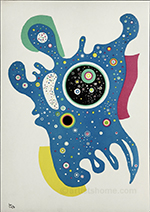
The World Pain
““‘“Man is amazing, but he is not a masterpiece [. . .] Perhaps
the artist was a little mad. Eh?”'" (125).
Joseph Conrad's Lord Jim (1900)
Flannery O'Connor's "Parker's Back" (1965), 655-75
- why is Parker ashamed of his fidelity to his wife (655, 663, 664, etc.)?
- why is Parker's elation upon first seeing a man covered in tattoos an important step in his spiritual development (657-58)?
- why might long views like that visible from Sarah Ruth's porch depress Parker (661)?
- why does Parker feel like someone is following him (664)?
- at what points in Parker's life does he feel compelled to make life-changing decisions, relying on instinct instead of reason, and why? What is he seeking?
- as Parker looks through the tattoo artist's book of religious designs, moving from contemporary towards older images, do the various depictions of Christ grow increasingly discomfiting or increasingly reasurring (667)?
- how does Parker respond when asked first by the tattoo artist (669) and then by his friends at the pool whether he's got religion?
- while lying under the artist's electric instrument, Parker recalls his near-death experience and anticipates Sarah Ruth's reaction to his newest tattoo (670). Which of these factors--the tractor accident or his wife--is the more compelling explanation for why he commissions the tattoo artist?
- why does Parker wish to avoid looking at the completed tattoos on his back (670)?
- at various points in the narrative, Parker fears for his sanity (661, 669). Why? Also, at what point does this fear--and his general dissatisfaction with life--actually dissipate?
- does Sarah Ruth enable or complicate Parker's journey towards spiritual truth?
- what events in this story echo Biblical events?
- early in the story, Parker considers two possible explanations for why Sarah Ruth might have been willing to marry him (655). Having finished the tale, which of teh two do you think the more plausible?
- some critics have identified Sarah Ruth as a Manichean heretic, as one who wrongly regards human existence as a struggle between the spiritual and the material instead of seeing soul and body as inextricably linked. Does O'Connor appear to be implicitly critiquing the Manichean posture?
Joseph Conrad's Lord Jim (1900), chps. 16-24
- how close have Jim and Marlow grown, amidst Jim’s long revelation about his past? What sort of intimacy have they achieved, and what distance remains?
- why might Marlow have difficulty remembering Jim as the “legend of strength and prowess” he appeared the last time Marlow saw him, and instead easily recall him as “‘taking, perhaps, too much to heart the mere consequences of his failure” (106)?
- what might be at issue, really, in that cryptic chp. 16 conversation held by Jim and Marlow filled with incomplete sentences (109)?
- consider the metaphors Marlow used to describe Jim’s post-story, vulnerable self (112, 113). Why might Marlow apply these metaphors—traditionally assigned to a female—to this male?
- why does Jim run away from the friend of Marlow who took Jim in for a number of months (112-15)?
- why does Marlow think his efforts to help Jim are inadequate? What element of Jim's person is Marlow able to assist, and what can he not reach?
- do Stein’s observations about human nature, and Jim specifically, seem valid?
- Marlow concludes that Jim's "fine sensibilities" are unfortunate (107). What does his friend Stein think of Jim's sensibility: does Stein think it a strength or weakness?
- what does Stein recommend as the answer/solution to the problem of the human condition? Does Marlow agree?
- consider the symbolic significance of the lighting conditions in Stein’s study (123-30).
- Marlow reflects that he and Stein sent Jim off to Patusan “‘with no other notion than to get him out of the way [. . .] though, I own, I might have had another motive which had influenced me a little’” (134). What was this other motive?
- what role does the revolver, given to Jim by Marlow, play in Jim’s arrival in Patusan?
- can you identify the comic malapropisms of the captain whose voluble speech seems, according to Marlow, “to be derived from a dictionary compiled by a lunatic’” (144)?
- what range of emotions does Marlow pass through as Jim prepares to leave for Patusan (142-45)?
- what has Jim found in Patusan that so thoroughly validates him? Does Marlow’s perspective concerning Jim’s new situation accord with Jim’s own?

Stars (1938)
Wassily Kandinsky
Dr. Paul Marchbanks
pmarchba@calpoly.edu
![]()
